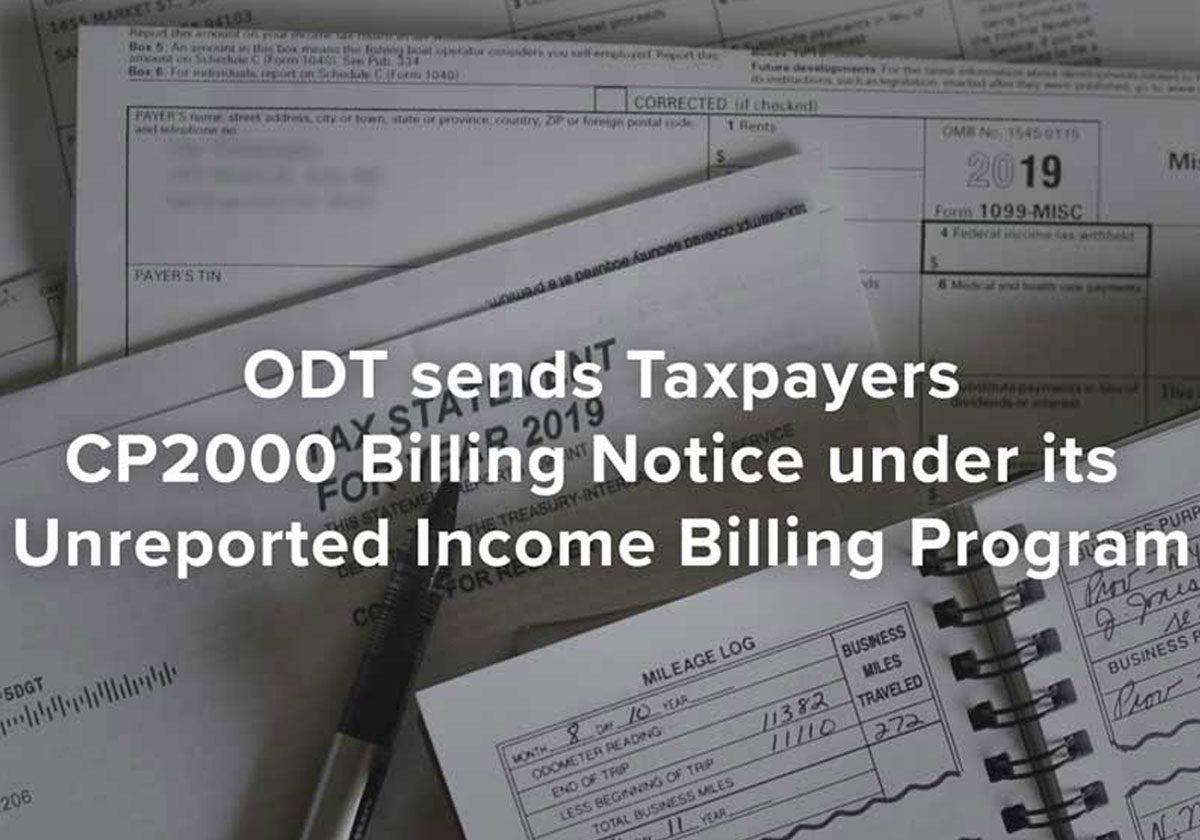Key Highlights:
On June 23, 2021, the Ohio Department of Taxation (ODT) began mailing CP2000 income tax billing notices for tax years 2015, 2016, 2017 and 2018 to taxpayers who have not filed an amended Ohio Individual Income Tax Return after resolving a CP2000 audit with the Internal Revenue Service (IRS). The CP2000 is the notice generated by the IRS Automated Underreporter Program to match taxpayer income and deductions submitted by third parties such as banks, brokerage firms, and other payers on information returns (such as Forms W–2 and 1099) against amounts reported on the Taxpayer’s U.S. Individual Income Tax Returns Form 1040.
Taxpayers should act promptly upon receiving the ODT CP2000 billing notices:
- If the Taxpayer agrees with the amount owed, the Taxpayer should pay the total amount owed as indicated on ODT’s CP2000 billing notice.
- Failure to respond to the billing notice will result in the issuance of an assessment and further collection action that may subject taxpayers to additional interest as well as a late payment penalty double the amount of interest due.
- If the Taxpayer disagrees with the amount of unreported income, the Taxpayer must obtain a copy of their Tax Account Transcript directly from the IRS (https://www.irs.gov/individuals/get-transcript) and send a copy of the Tax Account Transcript along with a copy of the CP2000 billing notice electronically by visiting tax.ohio.gov/ONRS.
ZHF Observations
1. ODT’s CP2000 billing program illustrates the importance of promptly and fully responding to the Notice CP2000 when it is initially sent by the IRS itself (i.e., well before ODT sends out its billing notice). As a general matter, if a Taxpayer has responded to the CP2000 and upon review, the IRS still believes that the adjustment in the CP2000 remained appropriate, it has been our experience that the next step is for the IRS to issue a statutory Notice of Deficiency. Therefore, in its initial response to the IRS CP2000, it is imperative for the Taxpayer to request a hearing with an IRS Appeals Officer. As long as there is sufficient time remaining in the statute of limitations, the case will be referred to the IRS Independent Office of Appeals.
2. After the additional federal income tax is formally assessed (as a result of the IRS’s CP2000 adjustment) and the Taxpayer is still in (IRS) Collections, in some limited instances the Taxpayer can submit an audit reconsideration request to the IRS. It is unclear whether ODT will suspend collection action under such circumstances.
3. The General Statute of Limitations Rule Does Not Apply. More widely applicable and broader than changes arising from the IRS underreporter program, the CP2000 billing program also serves as a reminder that within 60 days after a federal income tax adjustment was agreed to or finally determined, Ohio requires an amended Ohio individual tax return to be filed. If no Ohio amended return is filed, Ohio’s 4-year statute of limitations with regard to the federal adjustment does not begin to run. The only protection for noncomplying taxpayers is a prohibition for Ohio to issue assessments on tax that is ten years past due.
Next Steps
Before the Taxpayer receive an ODT CP2000 billing notice, it should strive to resolve the underreporter issue with the IRS. If you need assistance with the IRS or ODT, do not hesitate to contact H.T. Astrov or any of our other ZHF professionals.


